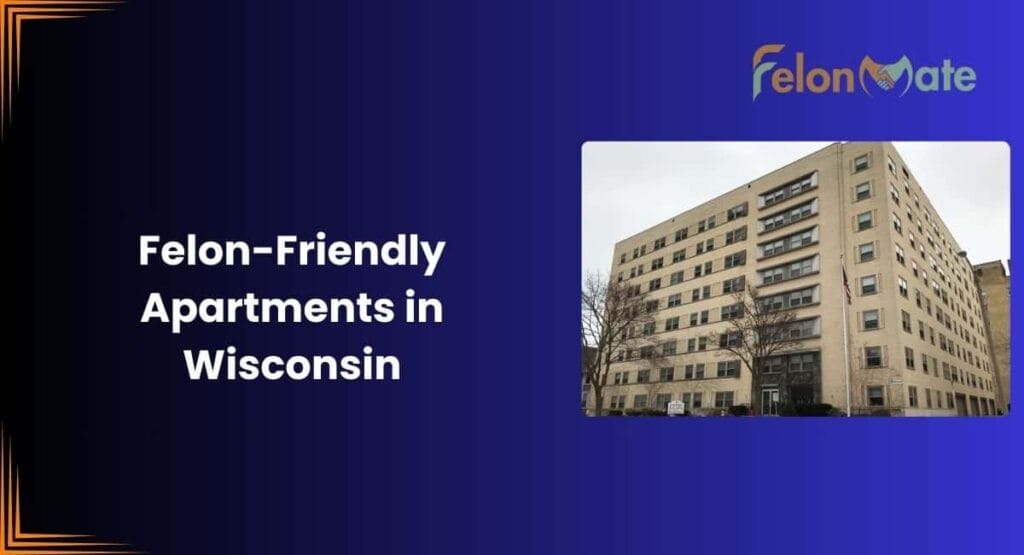Second Chance Housing For Sex Offenders Near Me
Are you a convicted sex offender and looking for second-chance rentals? Finding stable housing after a conviction is challenging, especially for those with a sex offense on their record. Property managers and landlords do background checks and deny renting their apartments to applicants with criminal histories.
However, if you follow the correct strategy, there is some scope for finding housing for rentals with offenses. This guide will provide some great tips on how to find second-chance housing near your location. It may take some effort, but ultimately, you’ll find a home to live a normal life.

5 Effective Ways To Find Housing For Sex Offenders
We know you’re facing difficulty finding a house to call home because of your felony. But Felon Mate is committed to guiding you through such a difficult situation. Here are some effective strategies that can increase your chances of finding second-chance housing for sex offenders:
1. Search On Google
We know you have already searched “housing for sex offenders near me” so many times on Google, but you are unsatisfied with the result.
Instead of a basic search on Google, we advise you to allow precise location services on your device. Google takes up your location and gives you the best possible result nearby.
The second method is, instead of searching for apartments/housing for sex offenders near me, we advise you to type the city name. For example, sex offenders housing list near “City Name.” This will give you more search results.
2. Connect with Local Housing Programs
Many organizations are dedicated to helping individuals with past convictions, including sex offenses, in finding housing.
Programs like reentry assistance services, nonprofit housing agencies, and faith-based organizations are designed to connect you with housing options that may not be publicly listed. You can find these through:
- State Housing Authorities: Many state agencies offer supportive housing programs and can refer you to landlords open to renting to individuals with a criminal record.
- Nonprofit Organizations: Groups such as First Step Alliance, The Fortune Society, and other local nonprofits often run housing programs specifically for people with criminal backgrounds.
3. Expand Your Search Radius
Location flexibility can expand your options. Larger metropolitan areas may have strict screening criteria, but moving to suburban or rural locations may provide more opportunities. Landlords in smaller communities may be more flexible with background checks, and you might find more affordable and welcoming housing with your felony.
4. Look for Private Landlords
Corporate-owned apartments usually have strict rental policies, often leaving individuals with felony records without options. Private landlords, on the other hand, might be more flexible and open to hearing your story.
Renting from private owners lets you approach them directly, explain your situation, and demonstrate why you’d make a good tenant.
- Online Rental Listings: Websites like Craigslist or Facebook Marketplace often have listings from private landlords who may not conduct rigorous background checks.
- Networking in the Community: Ask around in local support groups or community organizations; sometimes, personal recommendations make a big difference.
5. Ask on Reddit
Reddit is an excellent resource for finding second-chance rentals, especially for individuals with unique housing challenges, such as a criminal record.
Several subreddits, like r/Felons and r/SexOffenderSupport, provide guidance and personal experiences to help you find leads and support.
Members often share recommendations for felon-friendly landlords, local housing assistance programs, and other housing resources.
It’s also a place to ask questions anonymously and learn from others who’ve successfully navigated similar challenges when seeking second-chance rentals.
Challenges Sex Offenders Face in Finding Housing
Finding housing as a registered sex offender often presents steep challenges. Many landlords conduct rigorous background checks and may deny applicants with certain criminal records.
Local laws may also restrict housing options based on proximity to schools, parks, or other areas frequented by children.
Additionally, societal stigma and neighborhood opposition can limit housing availability, as communities sometimes push back against properties offering second-chance rentals.
This makes finding stable housing difficult, but awareness of these barriers can help individuals prepare for the search.
How Second-Chance Rentals Differ from Traditional Rentals
Second-chance rentals are specifically designed to help individuals with criminal backgrounds secure housing and often come with unique features.
Unlike traditional rentals, these properties may accept applicants with past felony convictions, including sex offenses, although policies can vary.
Second-chance rentals may also provide flexible lease terms, in-house support services, or alternative payment plans to assist tenants facing financial or legal challenges.
While they still perform background checks, second-chance rentals focus more on applicants’ current stability and behavior, allowing more room for people to start fresh.
Tips for Maintaining a Positive Relationship with Landlords
Building a respectful relationship with landlords can significantly improve housing stability in second-chance rentals.
To build trust, communicate openly and transparently with your landlord about any issues, including repairs or rent payment delays.
Always honor the lease terms, respect property rules, and avoid disturbances to foster goodwill. It’s also helpful to stay proactive by reporting minor issues early on and keeping the property well-maintained.
Positive landlord relationships can lead to lease renewals, recommendations, and even future housing opportunities, helping to establish a stable foundation.
Conclusion
Finding second-chance rentals as a sex offender can be challenging, but with the right strategy, resources, and support, you can find a stable home. States like Delaware, Idaho, Montana, and Texas tend to have more lenient housing restrictions for sex offenders, making relocation an option worth considering if feasible.



This was extremely helpful..i almost felt that finding housing under these circumstances would be impossible..this article atleast offers hope!
I would like to rent a house for apartment here in Phoenix
I would like to rent apartment or house in Phoenix, what is the requirements for so